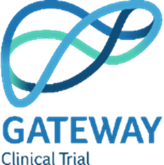VTX-801 Receives U.S. FDA Fast Track Designation for the Treatment of Wilson Disease
Paris, France and New York, NY, August 12, 2021 – Vivet Therapeutics (“Vivet”), a clinical-stage biotechnology company, and Pfizer Inc. (NYSE: PFE) today announced the U.S. Food and Drug Administration (FDA) has granted Fast Track designation to VTX-801, Vivet’s clinical-stage gene therapy for the treatment of Wilson Disease – a rare, genetic disorder that reduces the ability of the liver and other tissues to regulate copper levels, causing severe hepatic damage, neurological symptoms, and potentially death. The FDA’s Fast Track program is designed to facilitate the development, and expedite the review of, novel potential therapies that are designed to treat serious conditions and fill unmet medical need.
VTX-801 is a novel investigational gene therapy to be evaluated in a Phase 1/2 clinical trial to determine the safety, tolerability, and pharmacological activity of a single intravenous infusion in adult patients with Wilson Disease. Pfizer is collaborating with Vivet on the clinical supply of VTX-801 for the Phase 1/2 clinical trial.
“The FDA’s decision to grant VTX-801 Fast Track designation underscores the urgent need for new therapeutic options to address this devastating disease, which, if left untreated, can be fatal,” said Seng Cheng, Senior Vice President and Chief Scientific Officer of Pfizer’s Rare Disease Research Unit. “We are pleased to collaborate with Vivet on this important development program, which we believe, if successful, could make a meaningful difference in the lives of patients living with Wilson Disease.”
Dr. Michael Schilsky, Principal Investigator at Yale University School of Medicine (Connecticut, United States), said, “We are proud to participate in this important clinical trial. If VTX-801 is successfully developed, it has the potential to be a truly innovative medicine with the ability to restore copper metabolism after a single injection, addressing significant unmet medical needs for patients with Wilson Disease.”
“With the FDA’s authorization of the IND application for VTX-801 – combined with Pfizer’s state-of-the-art gene therapy manufacturing capabilities – we are well-positioned to rapidly advance development of this potential therapy,” concluded Jean-Philippe Combal, CEO and co-founder of Vivet.
About Fast Track designation
Fast Track is a process designed to facilitate the development, and expedite the review of, drugs to treat serious conditions that address an unmet medical need, by providing a therapy where none exists or providing a therapy which may be potentially better and shows some advantage over available therapy. Fast Track designation includes opportunities for more frequent meetings with the FDA to discuss trial design, development plans, data needed to support drug approval, submission of a New Drug Application (NDA) on a rolling basis, and eligibility for accelerated approval and priority review, if relevant criteria are met.
Visit FDA’s website for more information
About VTX-801
VTX-801 is a novel investigational gene therapy for Wilson Disease, which has been granted Orphan Drug Designation (ODD) by the Food and Drug Administration (FDA) and the European Commission (EC) and Fast Track designation by the FDA. Wilson Disease, a rare genetic disorder, is caused by mutations in the gene encoding the ATP7B protein, which reduces the ability of the liver and other tissues to regulate copper levels, causing severe hepatic damage, neurologic symptoms and potentially death.
VTX-801 is a novel, investigational rAAV-based gene therapy vector designed to deliver a miniaturized ATP7B transgene encoding, a functional protein that has been shown to restore copper homeostasis, reverse liver pathology and reduce copper accumulation in the brain of a mouse model of Wilson Disease. VTX-801’s rAAV serotype was selected based on its demonstrated tropism for transducing human liver cells.
About GATEWAY - Phase 1/2 Clinical Trial of VTX-801 in Wilson Disease
The GATEWAY trial (NCT04537377) is a multi-center, non-randomized, open-label, Phase 1/2 clinical trial designed to assess the safety, tolerability, and pharmacological activity of a single intravenous infusion of VTX-801 in adult patients with Wilson Disease, prior to and following background WD therapy withdrawal.

Six leading centers in the United States and Europe are expected to participate in the GATEWAY Phase 1/2 trial. The trial is expected to enroll up to sixteen adult patients with Wilson Disease and will evaluate up to three doses of VTX-801. Patients will participate in a pre-dosing observational period and will be administered a prophylactic steroid regimen.
The primary endpoint of the GATEWAY trial is to assess the safety and tolerability of VTX-801 at 52 weeks after a single infusion. Additional endpoints include changes in disease-related biomarkers, including free serum copper and serum ceruloplasmin activity, as well as radiocopper-related parameters and VTX-801 responder status to allow standard-of-care withdrawal.
A list of sites, contact information and more details on the study are available on:
https://clinicaltrials.gov/ct2/show/NCT04537377
To learn more about gene therapy on Wilson Disease, visit:
https://patienteducation.asgct.org/
About Vivet Therapeutics
Vivet Therapeutics is a clinical-stage emerging biotechnology company developing novel gene therapy treatments for rare, inherited metabolic diseases.
Vivet is building a diversified gene therapy pipeline based on novel recombinant adeno-associated virus (rAAV) technologies developed through its partnerships with, and exclusive licenses from, the Fundación para la Investigación Médica Aplicada (FIMA), a not-for-profit foundation at the Centro de Investigación Medica Aplicada (CIMA), University of Navarra based in Pamplona, Spain.
Vivet’s lead program, VTX-801, is currently under clinical development.
Vivet’s second gene therapy product, VTX-803 for PFIC3, received US and European Orphan Drug Designation in May 2020.
Vivet is supported by international life science investors including Novartis Venture Fund, Roche Venture Fund, HealthCap, Pfizer Inc., Columbus Venture Partners, Ysios Capital, Kurma Partners and Idinvest Partners.
Please visit us at www.vivet-therapeutics.com and follow us on Twitter at @Vivet_tx, on Facebook at Facebook/Vivet-Therapeutics and LinkedIn.
About Pfizer: Breakthroughs That Change Patients’ Lives
At Pfizer, we apply science and our global resources to bring therapies to people that extend and significantly improve their lives. We strive to set the standard for quality, safety and value in the discovery, development and manufacture of health care products, including innovative medicines and vaccines. Every day, Pfizer colleagues work across developed and emerging markets to advance wellness, prevention, treatments and cures that challenge the most feared diseases of our time. Consistent with our responsibility as one of the world's premier innovative biopharmaceutical companies, we collaborate with health care providers, governments and local communities to support and expand access to reliable, affordable health care around the world. For more than 170 years, we have worked to make a difference for all who rely on us. We routinely post information that may be important to investors on our website at www.Pfizer.com. In addition, to learn more, please visit us on www.Pfizer.com and follow us on Twitter at @Pfizer and @Pfizer News, LinkedIn, YouTube and like us on Facebook at Facebook.com/Pfizer.
Pfizer Disclosure Notice
The information contained in this release is as of August 12, 2021. Pfizer assumes no obligation to update forward-looking statements contained in this release as the result of new information or future events or developments.
This release contains forward-looking information about Vivet Therapeutics’ (Vivet) investigational gene therapy, VTX-801, including its potential benefits, that involves substantial risks and uncertainties that could cause actual results to differ materially from those expressed or implied by such statements. Risks and uncertainties include, among other things, the uncertainties inherent in research and development, including the ability to meet anticipated clinical endpoints, commencement and/or completion dates for our clinical trials, regulatory submission dates, regulatory approval dates and/or launch dates, as well as the possibility of unfavorable new clinical data and further analyses of existing clinical data; the risk that clinical trial data are subject to differing interpretations and assessments by regulatory authorities; whether regulatory authorities will be satisfied with the design of and results from the clinical studies; whether and when any applications may be filed in any jurisdiction for VTX-801; whether and when any such applications may be approved by regulatory authorities, which will depend on myriad factors, including making a determination as to whether the product’s benefits outweigh its known risks and determination of the product’s efficacy and, if approved, whether VTX-801 will be commercially successful; decisions by regulatory authorities impacting labeling, manufacturing processes, safety and/or other matters that could affect the availability or commercial potential of VTX-801; uncertainties regarding the impact of COVID-19 on Pfizer’s business, operations and financial results; and competitive developments.
A further description of risks and uncertainties can be found in Pfizer’s Annual Report on Form 10-K for the fiscal year ended December 31, 2020 and in its subsequent reports on Form 10-Q, including in the sections thereof captioned “Risk Factors” and “Forward-Looking Information and Factors That May Affect Future Results”, as well as in its subsequent reports on Form 8-K, all of which are filed with the U.S. Securities and Exchange Commission and available at www.sec.gov and www.pfizer.com.
Contacts
Vivet Media Contact: Thomas Daniel-Robin
[email protected]
Pfizer Media Contact: Jerica Pitts
212-733-1226
[email protected]








